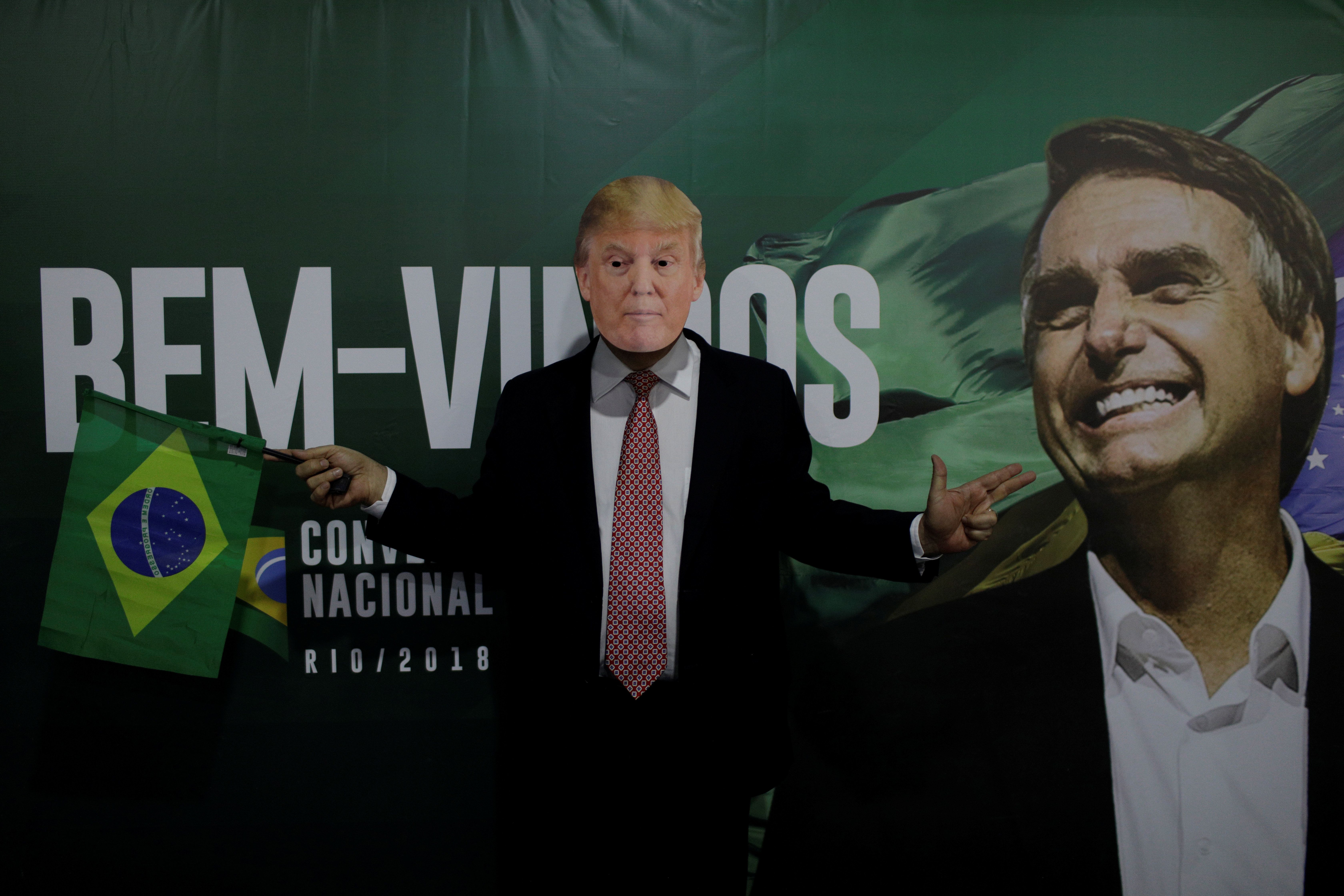October 30, 2018
As widely expected, Brazil’s far-right firebrand Jair Bolsonaro won the country’s presidential runoff in a landslide on Sunday. His brash and improbable rise to power has invited comparisons to US President Donald Trump, whom he openly admires.
So we thought we’d take a look at what that comparison does and doesn’t tell us about the man set to lead Latin America’s largest country.
It’s true that Trump and Bolsonaro have some important things in common. They both surged from the fringes to the center of power by exploiting popular frustrations with the traditional political class. They have both thrived on polarization and love to use rough language – in particular about women and minorities – to signal to their followers a kind of brash, unyielding authenticity. They both shrewdly used social media to circumvent mainstream media outlets that they decried as biased and hostile. Neither man has much regard for environmental protections or multilateral agreements, and the business community has gladly taken a gamble on both.
But taking the comparison too far can obscure the uniqueness of Brazil’s situation, which is very different from the United States. While Trump, to be sure, tapped into many Americans’ rising frustrations with trade, technology, and a changing society, his inaugural description of “American carnage” rings much truer of today’s Brazil than it does of the US.
Brazil, the largest economy in Latin America, has a rising murder rate that is more than six times higher than that of the US. What’s more, Brazil is just barely clawing out of the worst economic contraction in its history, and the country’s political class has been gutted by a multi-year anti-graft scandal that exposed malfeasance across the political spectrum, among officials and top businessmen alike. Popular confidence in the government has collapsed.
In his bid to solve these problems, Mr. Bolsonaro takes office with a stronger mandate than Trump – he won the popular vote by a whopping 10 million ballots with turnout of 80 percent – but also with a weak grip on a badly fragmented legislature. Trump lost the popular vote but came into office with both houses of Congress firmly on his side.
Bolsonaro, a former army man, has a defined track record of authoritarian pronouncements. That has raised concerns about how he – and Brazil’s institutions of democracy – will react if the going gets tougher in what is, quite clearly, a very tough situation to begin with.
So while Bolsonaro and Trump are certainly both part of the broader shift away from traditional political parties and norms that has swept across the world’s major democracies in recent years, Mr. Bolsonaro takes power in Brazil amid very different circumstances.
More For You
Bad Bunny during the Super Bowl LX halftime show press conference at Moscone Center.
Kirby Lee-Imagn Images
100 million: The number of people expected to watch the Super Bowl halftime performance with Bad Bunny, the Puerto Rican superstar and newly minted Album of the Year winner at the Grammys.
Most Popular
Think you know what's going on around the world? Here's your chance to prove it.
- YouTube
An imminent US airstrike on iran is not only possible, it's probable.
Americans are moving less — and renting more. Cooling migration and rising vacancy rates, especially across the Sunbelt, have flattened rent growth and given renters new leverage. For many lower-income households, that relief is beginning to show up in discretionary spending. Explore what's changing in US housing by subscribing to Bank of America Institute.
© 2025 GZERO Media. All Rights Reserved | A Eurasia Group media company.
